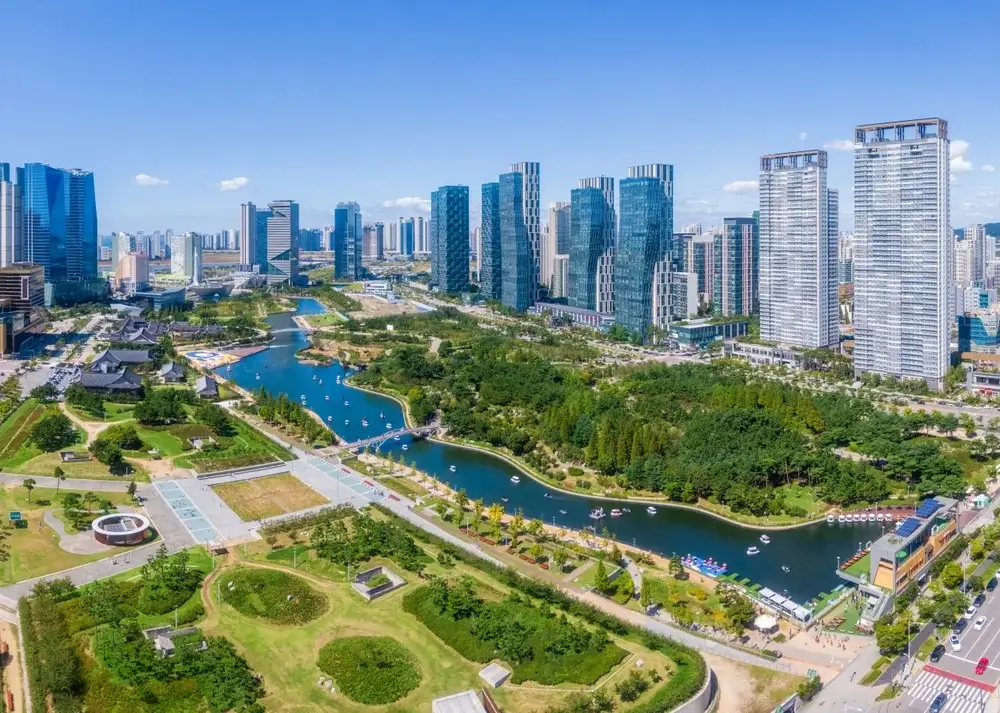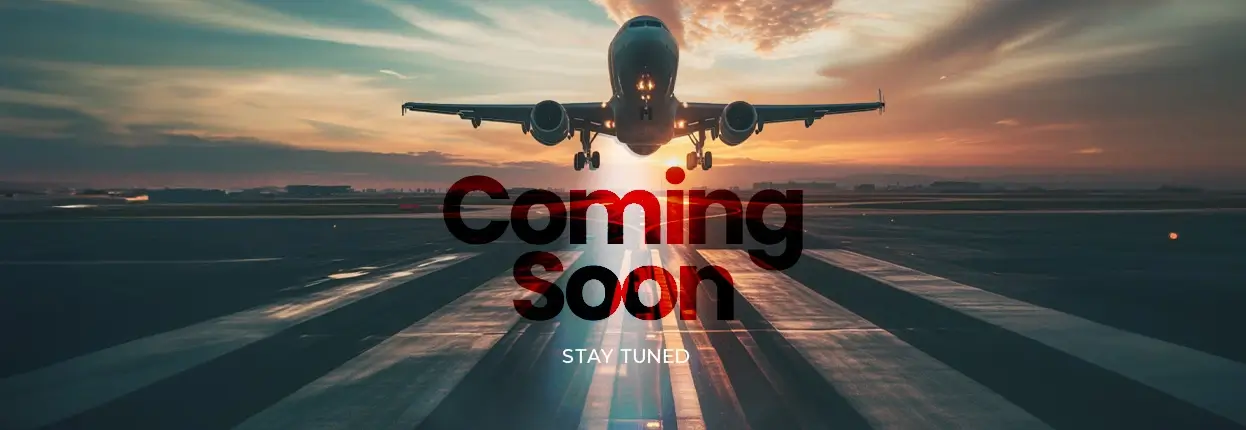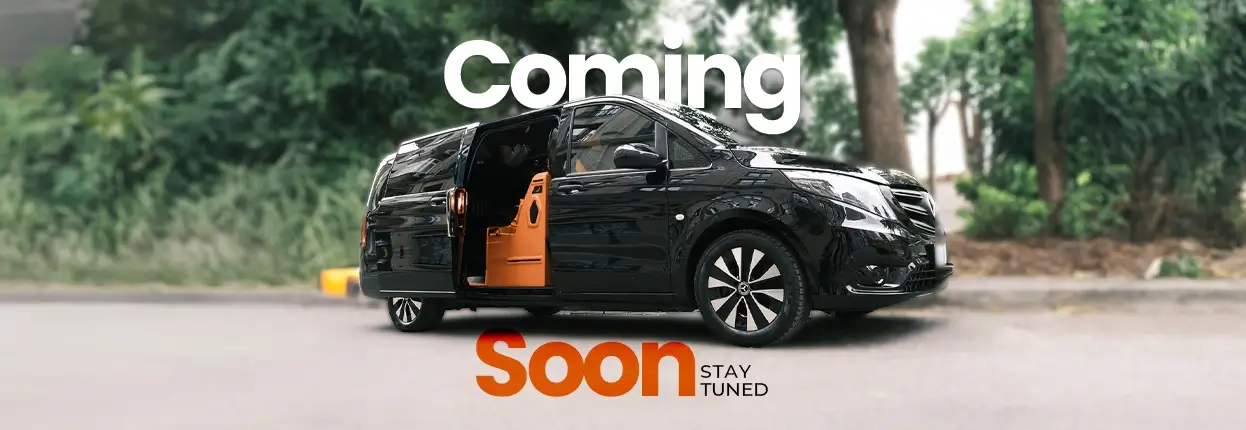Incheon
Incheon Travel Guide

From super-luxurious five-star indulgence in the very best of Incheon hotels to humble stays in the throes of frugal dealings in cheap hotels in Incheon, South Korea, there is definitely something for every kind of traveler. Ranging from boutique charm to internationally recognized chains, Incheon hotels span a wide spectrum of choices. You can take an easy walk along the busiest streets of the city, have a taste of its flavors, or simply go back and sit in style at one of the best hotels in Incheon, South Korea. Book your perfect hotel in Incheon, South Korea, today for a visit you will always remember.
Things to Know Before Going to Incheon
- Incheon is fully equipped with subways, buses, and taxis that run through every part of the city. The subway lines are extremely well-interconnected, especially Line 1 and the Suin Line, between Incheon and Seoul and the Province of Gyeonggi, which makes it very easy to travel there.
- The taxis are very affordable and available everywhere, with their fares starting from ₩2,500. Of course, they are great options for straight routes especially when carrying bags or traveling in groups.
- One of the best things you can undertake is taking the land and water double-use buses operated by the Ara Waterway. Schedules operate for these, offering some breathtaking views of the waterway.
- Incheon Chinatown gets that feel of vibrant culture, with good foods. It's also a place with historic landmarks and food.
- Once you want to have a relaxed day out, visit Songdo Central Park and Incheon Grand Park. They are the most beautiful landscapes you'll ever see, with good recreational activities.
- Incheon Landing Operation Memorial Hall, commemorating an important event of the Korean War, and the Modern Architecture Museum are things that visitors should not miss.
- Lively dining areas are Bupyeong and Guwol-dong Rodeo Street with all sorts of restaurants serving Korean and international cuisine. Seafood is highly recommended along the Wolmido waterfront.
- Incheon is also famous for its street food, and that is the reason it allows having a taste of the local delicacies. Be more adventurous and try some of the things the street vendors have to offer in every corner of the city.
- Since a high percentage does not speak English, it is always advisable to learn certain phrases in Korean that could help people get by. Translation apps are great in making communication easy.
- Change a little cash at the airport and then use global ATMs for better rates in town.
- Be connected by buying a SIM card or renting a Wi-Fi egg upon your arrival at the airport.
Where is Incheon?
Incheon is a city at the north-western tip of South Korea; its western edge serves as the gateway to the booming metropolis of Seoul. Situated about 25 miles (40 km) west-southwest of the capital at the mouth of the Han River, it has grown to become a very important port city and transportation hub for the region. It is area-wise about 1,062 square kilometers and has a population of about 3 million people, hence making it the third most populous city in the South Korean land after Seoul and Busan.
Where to Stay in Incheon?
Here’s a quick table of which areas in Incheon are great for tourists:
District | Best For | Top Attractions |
|---|---|---|
| Songdo International Business District (IBD) | Modern architecture Shopping Dining | Songdo Central Park Tri Bowl NC Cube Canal Walk |
| Incheon Airport Region | Convenience for airport layovers Business travel | Incheon International Airport Yeongjong Bridge |
| Incheon Chinatown | Authentic Chinese cuisine Culture | Incheon Chinatown Jayu Park |
| Wolmido Island | Beaches Amusement parks Seafood | Wolmido Island Wolmi Theme Park & My Land |
| Ganghwa Island | Historical sites Nature | Ganghwa Dolmen Site Ganghwado Peace Observatory |
Best Hotels in Incheon
Incheon hotels offer a blend of luxury and convenience, providing exceptional services and amenities for your trip to be more comfortable. Even though luxury hotels in Incheon may make you break the bank, they will be worth every penny thanks to their services. However, there are always mid-range and budget hotels in Incheon to enhance your days and make your city tour seamless. Tailored for everyone, finding what kind of accommodation you want won’t be as hard as you think. Now, here are some of the best hotels in Incheon we recommend and why:
Hotel | District | Affordability | Why To Stay There? |
|---|---|---|---|
| Grand Hyatt Incheon | Songdo International Business District | Luxury | Luxurious accommodations, excellent amenities, and convenient location near the airport |
| Sheraton Grand Incheon Hotel | Songdo International Business District | Luxury | 5-star hotel with luxurious rooms, indoor pool, fitness center, and spa |
| Oakwood Premier Incheon | Songdo International Business District | Luxury | Sophisticated apartment hotel with refined restaurants, bar, and 24-hour gym |
| Incheon Airport Transit Hotel | Incheon International Airport | Luxury | Airside hotel with comfortable accommodation directly within the terminal |
| Orakai Songdo Park Hotel | Songdo International Business District | Midrange | Modern hotel with city or sea views, bar, and upscale dining |
| Sono Calm Goyang | Ilsandong-gu, Goyang-si | Midrange | Upscale hotel with lake views, 2 restaurants, and fitness center |
| Mayfield Hotel | Gangseo-gu | Midrange | Hotel with several eateries, driving range, and wellness center |
| Courtyard Seoul Botanic Park | Gangseo-gu | Midrange | Business hotel with event spaces, restaurant, and cafe/bar |
| Harbor Park Hotel | Jung-gu | Budget | Offers stylish accommodations with a restaurant and bar, ideal for relaxation and convenience. |
| Hotel Skypark - Incheon Songdo | Yeonsu-gu | Budget | Features a buffet restaurant and fitness center, providing a straightforward and comfortable stay. |
| Toyoko Inn Incheon Bupyeong | Bupyeong District | Budget | Known for its clean and simple rooms, with meeting facilities and guest laundry options. |
| Incheon Guwol Hotel Bay 204 | Namdong-gu | Budget | Provides modern amenities and a good atmosphere at a reasonable price, perfect for budget travelers. |
Discover other best hotels in Incheon here!
Best Incheon Attractions
Incheon attractions promise times of great enjoyable time. After having a sneak peek at the charm of Seoul, the next place in South Korea should be Incheon because it offers a lot that is diversified and is only waiting to be explored and discovered amusingly. Be it parks, beaches, theme parks, or restaurants, you will go crazy trying to decide what to attend and what to miss:
- Yeongjongdo Railbike: For riding an uncommonly-built bicycle on this island's rail track - quite near Incheon Airport.
- Wolmido Island: Beautiful seascape and other entertainments like pirate-ship riding and "Disco pang-pang" in Wolmi Theme Park.
- Songwol-dong Fairy Tale Village: cultural village filled with colored wall pictures of the famous fairy tales and the characters, take your pictures with them.
- Incheon Chinatown: Discover the traces of Chinese cultural influence and enjoy Chinese foods like jajangmyeon, or noodles with black bean paste.
- Jayu Park: The first western-style park with historic monuments that house a statue of General MacArthur.
- Incheon Grand Park: A city-in-the-city nature park to take a walk.
- Songdo International Business District: Experience state-of-the-art hosting in a green, clean and safe space with facilities like roller skating, party boats, and biking.
- Ganghwa Island: Fill the island with various cultural assets from prehistoric to modern times, including Jeondeungsa Temple, Chojijin Fortress, Chamseongdan Altar, and Ganghwa Dolmen Park.
Is Incheon Safe for Tourists?
South Korea, and Incheon in general, is safe, but one has to be cautious in general of petty crimes such as pickpocketing, especially in areas with massive crowds. Immunization should be up-to-date, and travel insurance taken since medical costs are quite high. The area is also prone to natural disasters like typhoons, earthquakes, and flooding.
Public transport is efficient, and awareness of local traffic behavior and the use of taxi meters is advisable. Respecting local customs and cultural etiquette only reinforces the visit. Emergency services are good, although language can sometimes be a problem, so basic emergency contact details are recommended to be carried with you.
Is Incheon Expensive to Visit?
All accommodations, food, transportation, as well as options of activities in Incheon may range from very cheap to very upscale in taste. The accommodation varies greatly and ranges between $200-$400 for high-end, $80-$150 for mid-range, and right up to $30 for budget hotels. Transportation, as well, is relatively cheap where subway fare runs about $0.60, taxi fares about $2, and car rentals at about $66 a day. Street food is at about $2-$5 and mid-range restaurant meals are at about $10-$20.
In general, average budget travelers can suffice with $50-$70 per day, but for a more comfortable journey, one may need something between $100 and $150 daily. In that sense, Incheon definitely has something for everyone, regardless of your budget, from low to luxe.
Currency & Exchange in Incheon
On the other hand, in South Korea, the circulating currency is the South Korean won, abbreviated to KRW. To maximize convenience, there are quite a number of banks and exchange counters that facilitate money exchange at Incheon International Airport-from 6:00 AM to 10:00 PM, though it varies; time extends at some places up to around midnight. Among those facilitators, well-known banks include KB Kookmin Bank, Hana Bank, and Woori Bank.
MONEYBOX BUPYEONG and MONEYBOX UNSEO are typical examples of a currency exchange shop that is highly rated and provides very competitive rates; most of them are open from 10:00 a.m. to 9:00 p.m. in the downtown area of Incheon. For an online service, one can book the currency exchange through services like Creatrip, possibly at better rates than what the airport would offer, and then pick up the exchanged currency directly at the airport. One can make an advance booking of up to 14 days.
Spoken Languages in Incheon
The primary spoken language is Korean in Incheon, integrated into the very fabric of everyday life, school, and government. Even though the city has an international character, there is much English heard, too- at least when one travels to tourist destinations, hotels, and better restaurants. Among the younger population and those in the tourism industry, a basic to moderate grasp of English is noticeable regularly.
There might also be Chinese spoken all over Chinatown, home to the great community of Chinese, while other languages such as Spanish, Vietnamese, and Tagalog could be echoing within neighborhoods. Of course, English is very common everywhere but in local settings, tourists would have problems due to language; therefore, learning the basic Korean phrases would be helpful or they could always rely on a translation application.
How Many Days Are Enough to Visit Incheon?
A trip to Incheon will suit your taste preferences perfectly for 3-5 days. That is, in 1-2 days, a person may easily go around all these cultural attractions and spend time outdoors, finding pleasure from walking in Songdo Central Park and Wolmido Island.
With 3 to 4 days, you will have time for day trips to the historic sites and beautiful nature on Ganghwa Island; you can also easily handle shopping and dining in local districts with plenty of time. Staying longer than 5 days allows you really to unwind for leisure-you can go to a spa, visit beaches on Yeongjong Island, or participate in any of the many local events or festivals for a fuller cultural experience.
When is the Best Time to Stay in Incheon?
The best times to visit Incheon are during the springs from March to May and fall from September to November, with most temperatures ranging within 20° C. Winters can be pretty cool, and summer months may get hot and humid due to monsoons.
Season | Temperature (°C/°F) | Activities | Rates | Crowd | Clothing |
|---|---|---|---|---|---|
| Spring (March to May) | 5°C to 21°C (41°F to 70°F) | Cherry blossom festivals, outdoor sightseeing, parks | Moderate to high | High, especially in April | Light layers, comfortable shoes |
| Summer (June to August) | 21°C to 30°C (70°F to 86°F) | Beach activities, water sports, festivals | Moderate | Low to moderate | Light clothing, sunscreen, rain gear |
| Fall (September to November) | 11°C to 26°C (52°F to 79°F) | Autumn foliage viewing, cultural festivals | Moderate to high | Moderate | Light layers, comfortable shoes |
| Winter (December to February) | -4°C to 5°C (25°F to 41°F) | Winter sports, indoor attractions, holiday events | Low | Low | Warm clothing, layers, winter accessories |
What to Pack for Incheon Trip?
During summer days, people need to put on very light breathable clothes, like shorts, T-shirts, and dresses. During spring and autumn, bring some layers: light jackets or sweaters; during winter, very warm wear should be heavily coated, including scarves, gloves, and thermal layers. Comfortable shoes, like sneakers or walking shoes, are an important aspect due to the amount of walking expected in any tour of cities and their attractions.
Also, don't forget a travel adapter appropriate for the two-hole sockets of South Korea with a voltage of 220V. Bring along all essential medications and toiletries, including prescription drugs, painkillers, and items for personal care.
Electronics to take with you—phone, camera, and most importantly a power bank to recharge the former. Travel documents should be kept in one safe place: a passport, visa, and details about travel insurance. Highly desirable is to have some local currency in your pocket for minor expenses—the South Korean Won in this context—and a credit/debit card for the greater field of its application. And finally, take some travel guidebooks or apps with information about attractions and local recommendations.
What to Eat in Incheon?
Incheon is the seaside jewel of South Korea, boasting a vibrant food culture and proudly housing the country's biggest airport. The city is easily accessible from Seoul and has a great interweaving of traditions insofar as food is concerned, highly influenced by its prominent Chinese community and the bounties of seafood available.
- Jjajangmyeon: If there's one place that does this popular Korean-Chinese noodle dish right, it's Incheon's Chinatown.
- Jjolmyeon: These have thick noodles from the 1970s; they were made in a manufacturing accident.
- Washbasin Naengmyun: A variation of cold noodles that is consumed in an oversized steel bowl to keep it colder longer, generally meatless.
- Salted Shrimp Kalbi Stew: Soup with salted shrimp, vegetables, and very light seasoning, concentrating on the natural flavors of each ingredient.
Incheon Nightlife & Entertainment
A modern city near Seoul is Incheon, which has the same dynamic nightlife as the capital. Sure, there are microbreweries and slick bars, but there is also a fair share of karaoke spots:
- The Cinder Bar: A popular spot known for its vibrant atmosphere and diverse drink selection.
- The Jet Lagged Lizard: A casual bar offering a relaxed environment, ideal for unwinding after travel.
- O’Malley’s Irish Pub: An Irish-themed pub featuring traditional food and drinks, often hosting live music events.
- Little Woodstock: A cozy venue with a laid-back vibe, serving a variety of beverages and light snacks.
- Liquor Burger Incheon: A unique combination of a burger joint and bar, known for its gourmet burgers and craft beers.
- Playground Brewery Taproom Songdo: A brewery taproom offering a selection of craft beers brewed on-site, along with tasty bites.
- Hunter Seumun Incheon Nonhyeon Points: A bar that provides a lively atmosphere, often frequented by locals and tourists alike.
- Modulang: A trendy spot known for its cocktails and modern decor, popular among young adults.

